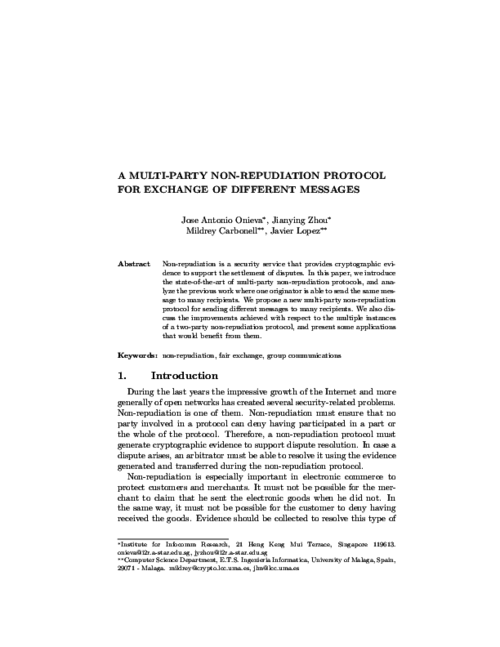 ]
] III Simposio Español de Comercio Electronico (SCE’05), Universitat de les Illes Balears, pp. 151-164, 2005.
Abstract
El no repudio es un requisito de seguridad cuya importancia se ha hecho evidente con el crecimiento del comercio electrónico. Muchos protocolos se han desarrollado como solución a este requisito. La gran mayoría incluye en su especificación parámetros cuyos valores no son fáciles de especificar pues dependen de las condiciones reales de implementación del mismo como los tiempos límites, las características de la TTP, tiempo de publicación de las claves, etc. En este trabajo proponemos un modelo que nos ayudará en la estimación de esos parámetros basado en la simulación del escenario real. Para la explicación y prueba del modelo mostramos un conjunto de experimentos.
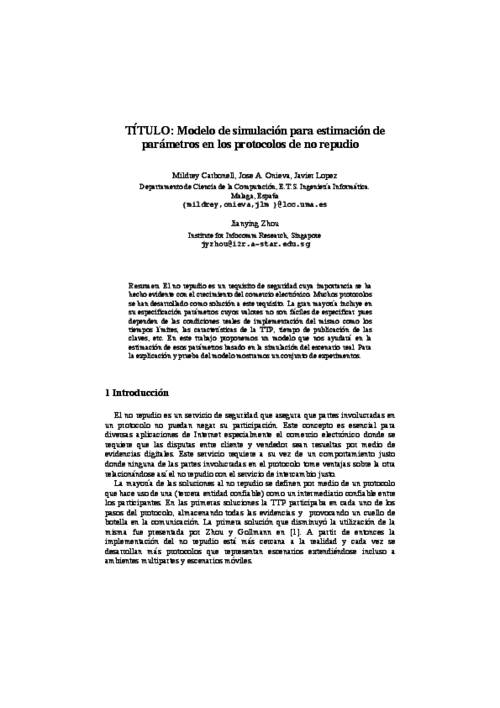
Electronic Commerce Research and Applications, vol. 3, no. 2, Elsevier, pp. 152-162, 2004.
Abstract
Non-repudiation is a security service that provides cryptographic evidence to support the settlement of disputes in electronic commerce. In commercial transactions, an intermediary (or agent) might be involved to help transacting parties to conduct their business. Nevertheless, such an intermediary may not be fully trusted. In this paper, we propose agent-mediated non-repudiation protocols and analyze their security requirements. We first present a simple scenario with only one recipient, followed by a more complicated framework where multiple recipients are involved and collusion between them is possible. We also identify applications that could take advantage of these agent-mediated non-repudiation protocols.
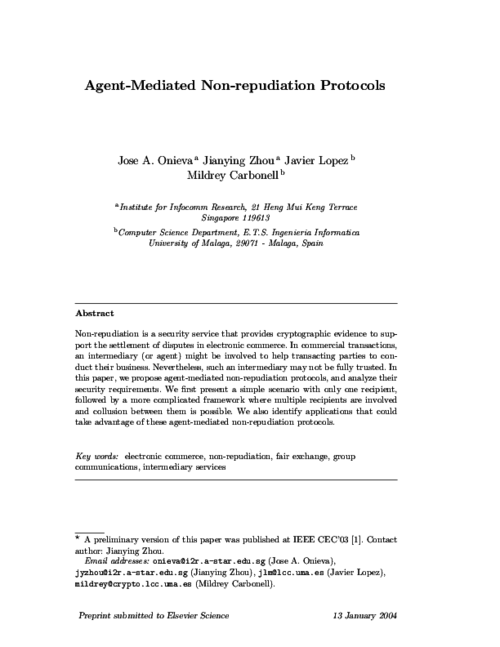
2nd Workshop on Internet Communications Security (WICS’04), (within Computational Science and its Applications International Conference), LNCS 3043, Springer, pp. 903-914, May, 2004.
Abstract
An essential issue for the best operation of non-repudiation protocols is to figure out their timeouts. In this paper, we propose a simulation model for this purpose since timeouts depend on specific scenario features such as network speed, TTP characteristics, number of originators and recipients, etc. Based on a one-to-many Markowicth’s protocol simulation model as a specific example, we have worked out various simulation experiments.
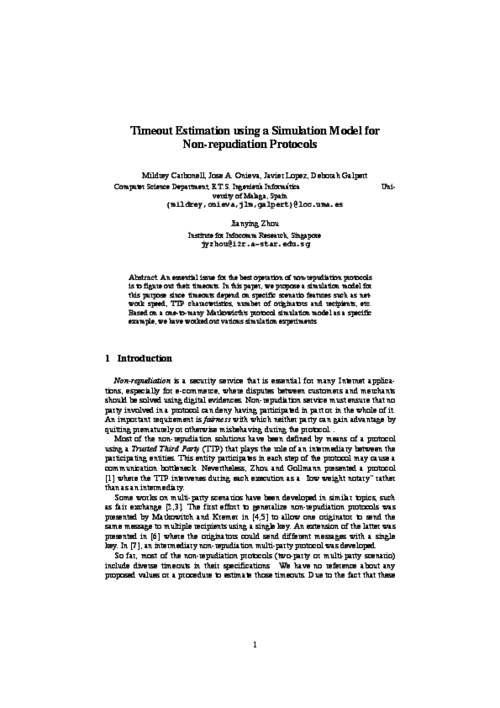
5th Conference on Electronic Commerce, IEEE Computer Society, pp. 207-214, June, 2003.
Abstract
n commercial transactions, an intermediary might be involved to help transacting parties to conduct their business. Nevertheless, the intermediary may not be fully trusted. In this paper, we introduce the concept of intermediary (or agent) in a non-repudiation protocol, define the aims of intermediary non-repudiation protocols, and analyze their security requirements. We present a simple scenario with only one recipient, followed by a more complicated framework where multiple recipients are involved and collusion between them is possible.
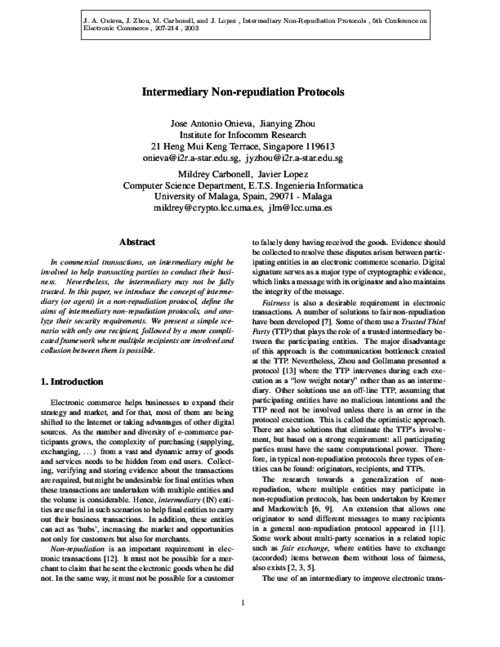
18th IFIP International Information Security Conference. Security and Privacy in the Age of Uncertainty (IFIP SEC’03), IFIP, pp. 37-48, May, 2003.
Abstract
Non-repudiation is a security service that provides cryptographic evidence to support the settlement of disputes. In this paper, we introduce the state-of-the-art of multi-party non-repudiation protocols, and analyze the previous work where one originator is able to send the same message to many recipients. We propose a new multi-party non-repudiation protocol for sending different messages to many recipients. We also discuss the improvements achieved with respect to the multiple instances of a two-party non-repudiation protocol, and present some applications that would benefit from them.
